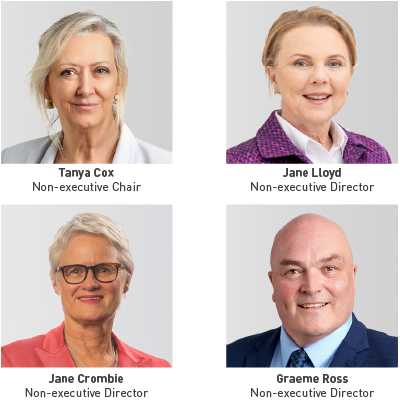A deep dive: Meet the Board of Cromwell Funds Management
Cromwell Funds Management Limited (CFM) is a multi-award-winning Australian real estate fund manager that seeks to create and manage attractive commercial property investment opportunities for its investors.
Since its inception, the strategic aim of CFM has been to build investor wealth through the careful selection, acquisition, and management of secure income-producing commercial properties and portfolios.
Real expertise has always been, and remains, critical to the success of the business; it is that expertise and leadership on which CFM relies.
In this edition, Insight magazine is profiling the experts at the very top of the Cromwell Funds Management organisation; the people responsible for steering our success – the Board of Directors.
Cromwell Funds Management Board of Directors
In 2022, Cromwell refreshed the CFM Board, which oversees the Cromwell Direct Property Fund, as well as Cromwell’s property syndicates and listed security funds.
“It was Cromwell’s intention to identify a small number of financial and property experts, who had worked through a number of economic cycles and who, consequently, had experience managing property investments through long-term property cycles,” explained Tanya Cox, Chair of the Board of Cromwell Funds Management.
As such, the directors of CFM were carefully selected from the property, finance, investment banking, and capital markets sectors to help steer Cromwell’s funds through both the peaks and troughs of future property cycles.
The Cromwell Funds Management Board is today comprised of four industry professionals with more than a century of combined property, finance, and funds management experience.








